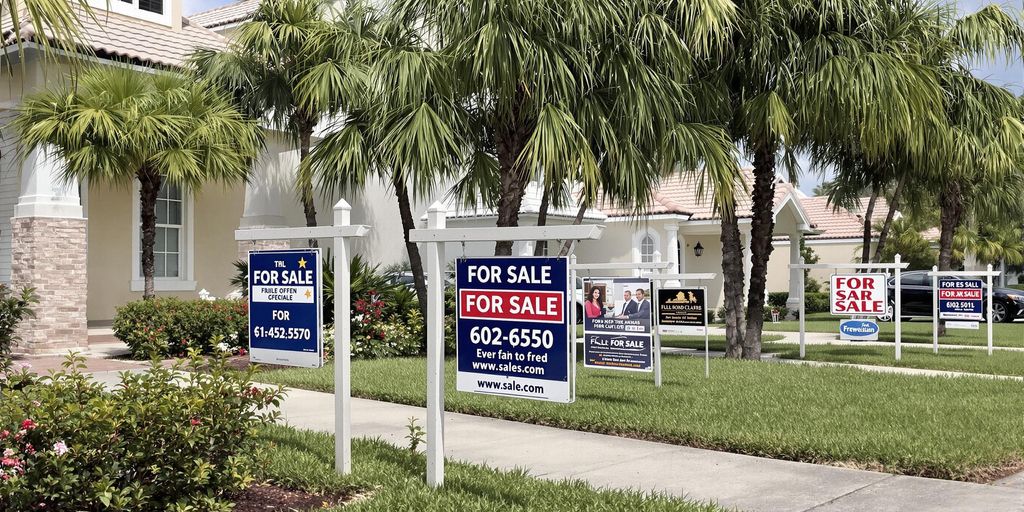Florida’s once-booming housing market is experiencing a significant downturn, marked by falling prices, rising inventory, and growing concerns about potential market crashes in certain areas. This shift signals a cooling period after years of rapid growth, with buyers gaining more leverage as demand softens and affordability challenges persist.
Florida Housing Market Cools Amidst Rising Inventory
The Sunshine State’s real estate sector is seeing a notable increase in the number of homes available for sale. This rise in inventory, coupled with a slowdown in buyer demand, is contributing to price stabilization and, in some regions, outright price declines. While this presents a more balanced market, it also indicates a departure from the frenzied activity of previous years.
Key Takeaways
- Home prices are declining in several Florida metropolitan areas, including West Palm Beach and Jacksonville.
- Inventory levels have increased, leading to longer selling times and more buyer negotiation power.
- Affordability remains a major concern due to high prices, rising insurance costs, and interest rates.
- Some markets are showing signs of significant price correction, with potential for further declines.
Price Drops and Market Shifts
Data indicates that several major Florida metros are experiencing year-over-year price drops. West Palm Beach saw a 4.9% decrease, while Jacksonville experienced a 3.1% decline. This trend is attributed to a combination of factors, including economic uncertainty and the increasing cost of homeownership, which is sidelining potential buyers. Homes are taking longer to sell, with pending sales down in key areas like Miami and Tampa.
Factors Influencing the Downturn
Several elements are contributing to the current state of the Florida housing market. High mortgage rates, though slightly down from recent peaks, continue to impact affordability. More significantly, soaring homeowners insurance premiums and increased costs associated with condo ownership, partly due to new state regulations following the Surfside collapse, are creating substantial financial burdens for residents. Climate change risks, such as hurricanes and sea-level rise, also play a role, influencing insurance costs and buyer sentiment in coastal areas.
Regional Variations and Future Outlook
While the overall trend points to a cooling market, regional variations exist. Some areas, like Orlando and Tampa, may remain relatively stable due to strong job growth. However, markets that were previously overheated or heavily impacted by natural disasters may face steeper price corrections. Experts predict a period of adjustment in the short term, with potential for a gradual rebound driven by Florida’s continued population growth and economic development. However, the trajectory will heavily depend on factors like interest rate movements and the stabilization of insurance costs.
Sources
- wsj.com, The Wall Street Journal.
- Home Prices Drop in 14 Major U.S. Metros, Including Parts of Florida and Texas, As Buyers Gain Upper Hand, Redfin.
- Florida real estate market continues to evolve, Bay News 9.
- Florida Housing Market Predictions for Next 5 Years: 2025-2030, Norada Real Estate Investments.
- Right Time To Buy Real Estate? Florida Housing Market Uncertainty at Three-Year High, Space Coast Daily.


